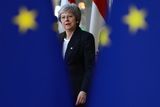Best and worst scenarios: Everything you need to know about what a hard Brexit will mean for Ireland
It's time to start thinking the unthinkable. Britain's prime minister-in-waiting Boris Johnson is insisting that Brexit must happen "deal or no deal". Ursula von der Leyen, the European Commission's new president, says there will be no renegotiation. But how will Ireland be affected if Britain crashes out at Halloween? Andrew Lynch brings the best and worst scenarios and some possible solutions that might help us to make the best of it
A is for Agriculture
The issue: No sector of Irish society has more to lose from a no-deal Brexit than the farming community. It would place crippling tariffs on sales of beef, dairy and poultry, with one EU report suggesting that the full cost could be €5.5bn between now and 2030.
Worst-case scenario: Thousands of farms become economically unviable, dealing rural Ireland a blow that makes the loss of post offices and garda stations seem mild by comparison.
Reason to hope: Finance Minister Paschal Donohoe has set aside €700m in October's budget for vulnerable industries if no deal looks likely, which would at least cushion the initial blow.
B is for Border
The issue: History suggests that any physical infrastructure along this 500km frontier will immediately become a target for republican groups. Boris Johnson, the favourite to become the new UK prime minister next week, has called it "the tail wagging the dog" and dismissed Irish concerns as "pure millennium bug stuff". "It's so small and so few firms use that Border regularly," he told a meeting of business leaders last year, which must be news to the 6,000 commercial vehicles crossing between north and south every day.
Worst-case scenario: Regulatory inspections are unavoidable and the first tangible legacy of Brexit is a dead customs officer.
Reason to hope: The EU might just agree to suspend checks until a British-Irish trade deal is agreed.
C is for Cost of living
The issue: Higher tariffs are almost always passed on to the consumer - and not just for luxuries. One ESRI study has concluded that a no-deal Brexit would increase the price of bread and cereals by up to 30pc, with dairy products such as milk, cheese and eggs rocketing by 46pc.
Worst-case scenario: The same survey estimated a 2-3pc hike in the cost of living for Irish households, which in real terms means between €892 and €1,360 per year.
Reason to hope: At least people are apparently bracing themselves for the impact, since savings are at their highest for a decade.
D is for Data
The issue: When Britain leaves, the legal basis for everyday transfers of electronic data between it and EU countries goes too. Moreover, the guaranteed free roaming launched across the EU in 2017 would disappear - raising the prospect of huge holiday phone bills.
Worst-case scenario: Irish banks and e-commerce businesses face a major security headache.
Reason to hope: For now at least, Irish mobile operators have decided that reintroducing roaming charges for visitors to the UK would not be worth the loss of customer goodwill.
E is for Electricity
The issue: Since 2007 there has been a Single Electricity Market across this island, underpinned by Ireland and the UK's joint EU membership. If that's split into two, the Government has warned, both markets will be "less efficient, with potential effects for producers and consumers on both sides of the Border".
Worst-case scenario: Energy prices rise in the Republic, while Northern Ireland needs emergency supplies from offshore barges to stop the lights going out.
Reason to hope: The Government's contingency plan promises to give the Commission for the Regulation of Utilities extra powers that will address "any issues of non-compliance with EU law".
F is for Flying
The issue: 'Air Head' was a headline in The Sun last July after Taoiseach Leo Varadkar allegedly threatened to ban British planes from Irish skies. While the story was nonsense, a no-deal Brexit would certainly cause some turbulence in the European aviation industry.
Worst-case scenario: Irish passengers may no longer be able to use UK airlines for travel between EU countries, since those planes can only travel back to Britain.
Reason to hope: Tánaiste Simon Coveney has said a "skeleton arrangement" could be put in place to let planes fly from British airports with their current safety certs, but even he admits it is "not a pretty picture".
G is for Good news
The issue: Amidst all the doom and gloom, it's easy to forget that a hard Brexit has upsides for Ireland, too. With Britain turning inwards, many global companies might be tempted to flee the City of London and set up shop in the Irish Financial and Services Centre instead.
Worst-case scenario: The outlandish cost of housing in Dublin means we could lose investment opportunities to Brexit rivals such as Amsterdam.
Reason to hope: If Britain elects a far-left Labour government under Jeremy Corbyn, it may cause a rush of capital flight across the Irish Sea.
H is for House prices
The issue: Where would a no-deal Brexit take the Irish property market? "Into the unknown" was one less than reassuring answer from the Real Estate Alliance last December, while last week the Central Bank warned of a possible crash due to job losses and fire sales by cuckoo funds. Some areas could be particularly vulnerable: Border counties where locals would suffer from the loss of free movement, the high-end Dublin market where potential buyers rely on UK business and farming regions where the local economy will suffer most.
Worst-case scenario: Thousands of home-owners are plunged back into negative equity.
Reason to hope: Pent-up demand might help the market to flatten out instead, which most economists would regard as no bad thing.
I is for Irish unity
The issue: Recent opinion polls leave no room for doubt - Brexit has significantly increased support for a united Ireland among voters north and south. With the Scottish National Party busy planning a second independence referendum, the chances of a Border poll on this island before 2025 are also steadily rising.
Worst-case scenario: A bitter and tribal referendum campaign only succeeds in making the north's sectarian divide even worse.
Reason to hope: If moderate unionists begin feeling their loss of EU membership keenly, we might just be able to put the orange-green divide behind us once and for all.
Boris Johnson with Arlene Foster at the DUP conference in 2018
J is for Johnson factor
The issue: "Forget Boris Johnson, he's yesterday's person!" Simon Coveney declared in a radio interview last September. Now he looks set to be tomorrow's person too. Johnson has claimed the chances of no deal are "a million to one", but it is no great secret that Irish government officials regard him as lazy, unreliable and reckless enough to do almost anything.
Worst-case scenario: Boris drags Anglo-Irish relations down to their most fractious state since the 1970s.
Reason to hope: Johnson might just be the one Brexiteer shameless enough to tell his supporters, "Sorry chaps, look like it won't work after all - let's call the whole thing off."
Boris Johnson is fond of a Kit-kat
K is for Kitkat
The issue: Ok, so this isn't exactly the biggest crisis facing Ireland in a no-deal scenario. Many of us with a sweet tooth, however, will have felt uneasy to learn that the Swiss food giants Nestlé recently warned our government about "complications related to the importation of confectionery and other goods manufactured in the UK into Ireland".
Worst-case scenario: Irish children's selection boxes could be missing such iconic brands as Aero and Smarties next Christmas.
Reason to hope: Boris Johnson has written about his own fondness for a KitKat, so perhaps this might bring him to his senses.
L is for Law
The issue: The UK's full-blown departure would create various legal problems for family disputes in particular. Divorces obtained in Britain or Northern Ireland will not be recognised in the Republic, custody cases could be split between two legal regimes and cross-border maintenance payments may no longer be guaranteed.
Worst-case scenario: Confusion reigns and adds to Ireland's already sky-high legal fees.
Reason to hope: The Government has promised that legislation is being prepared to deal with all these justice-related difficulties.
Many motorists face a headache should a no-deal Brexit come about
M is for Motoring
The issue: A no-deal Brexit has serious consequences for anyone with a driving licence. For a start, Britain will no longer be covered by the EU Motor Insurance Directive so any Irish motorist must get a Green Card before travelling there. The 100,000 Irish people who buy used cars from the UK every year must also think again, since they will be liable for 23pc VAT. Most worryingly of all, Ireland imports over 90pc of our petroleum products from the UK so any price hike would hit us hard.
Worst-case scenario: The prohibitive costs of running a vehicle here could rise even further.
Reason to hope: At least Irish car dealers should benefit from the UK import market's woes.
N is for Nature
The issue: Understandably, most Brexit discussions have focused on the immediate economic cost. However, the UK's opt-out from EU environmental directives could also pose a threat to our natural world. To take just one example, British zoos will be excluded from EU animal breeding programmes - hampering the conservation work being carried out by Dublin Zoo and Fota Wildlife Park.
Worst-case scenario: Friends of the Earth are warning of the negative impact on Ireland's threatened species, hazardous waste and air pollution.
Reason to hope: Climate change awareness is growing all the time, so there should be intense pressure to restore all-island standards as soon as possible.
O is for Online retail
The issue: Internet shopping has become a way of life for many Irish consumers. Following Brexit, however, any item over €22 bought from a British retailer will be subject to VAT and customs duties will be slapped on imports over €150. It will also become more difficult to return unwanted goods since excise duties paid must be reclaimed directly from the Revenue Commissioners.
Worst-case scenario: The arrival of an Amazon package means getting out your credit card yet again.
Reason to hope: At least the beleaguered Irish high street might regain a few customers.
P is for Pensions
The issue: An EU without Britain could make planning for your retirement even more complicated. The last three budgets have all added a fiver to the state contributory pension, but Social Protection Minister Regina Doherty says this can't be guaranteed next October because Brexit is causing too much uncertainty. As for its impact on pension funds, anyone with assets in sterling should expect at least some short-term volatility.
Worst-case scenario: If Brexit pushes us into recession, the Government's promise to introduce auto-enrolment pensions by 2022 may be postponed or even scrapped.
Reason to hope: Most politicians are terrified of 'the grey vote' and will be reluctant to antagonise anyone past retirement age.
Q is for Quality
The issue: While trade tariffs can often be paid online, food products must be physically inspected to make sure that they meet the required EU standard. Last week Simon Coveney admitted for the first time that a no-deal Brexit will mean veterinary checks on goods coming from Northern Ireland into the Republic, looking out for inferior produce such as chlorinated chicken. He is still being coy, however, about exactly where they might take place.
Worst-case scenario: Congestion, delays, extra bureaucracy and general disruption to cross-Border trade.
Reason to hope: Leo Varadkar has suggested that the island of Ireland could be treated as a single economic zone for agricultural trade - and, surprisingly, the DUP are not ruling it out.
Fishing rights around Rockall will come into sharp focus if a no-deal Brexit materialises
R is for Rockall
The issue: Last month's war of words between Irish and Scottish ministers over fishing rights surrounding a lump of granite 260 miles off Donegal has temporarily quietened down. The fact remains, however, that Irish trawlers take roughly a third of their catch from UK waters and this will be under threat once Britain has left the Common Fisheries Policy.
Worst-case scenario: Sean O'Donoghue, CEO of the Killybegs Fishermen's Organisation, says a hard border down the Irish Sea could "absolutely destroy" many coastal businesses.
Reason to hope: The EU has put forward proposals both to financially compensate our fishing industry and offer two-way access to Irish and UK waters for a limited period. Frankly, it's hard to see one here - although mobile inspection units might relieve the pressure.
S is for Shortages
The issue: Around two-thirds of the products on Irish supermarket shelves come from Britain. Almost 70pc of our medical supplies have the same origin. With reports of stockpiling over there already, there are bound to be shortages - not so bad if it's breakfast cereal, a lot more serious if it's blood pressure tablets.
Worst-case scenario: Hearing the words, "Sorry, we've run out already," becomes a daily occurrence.
Reason to hope: "Nobody will go hungry," Leo Varadkar has promised - and people will hold him to it.
T is for Tourism
The issue: The Irish hospitality sector relies heavily on British visitors, with roughly 3.5m of them spending around €1.3bn here every year. A no-deal Brexit will almost certainly hit sterling hard, however, which in turn makes us less attractive as a holiday destination.
Worst-case scenario: Fáilte Ireland's chief executive Paul Kelly warned an Oireachtas committee last November that the price tag could be as much as €390m.
Reason to hope: The Government may try developing other markets or reversing the tourism sector's recent VAT rate hike from 9pc to 13.5pc.
U is for Unemployment
The issue: Paschal Donohoe is not bothering to sugar-coat it. The Minister for Finance estimates that a no-deal Brexit could cost Ireland between 50,000 and 55,000 jobs over the next two years, with another 30,000 at risk in the medium term. Once again agriculture would be the sector hardest hit, although workers in the textile, beverages and traditional manufacturing industries should also be extremely worried.
Worst-case scenario: The dream of full employment, so tantalisingly close today, is put out of Ireland's reach for a decade or longer.
Reason to hope: Simon Coveney has claimed, "We're probably going to be gaining a similar number [of jobs] in other parts of the economy… the net unemployment figure probably won't increase."
V is for Voting
The issue: "If it wasn't for Brexit, ye'd be gone," Fianna Fáil's Barry Cowen told Fine Gael TDs last February. Brexit has been the glue holding this government together for a long time, but if Britain crashes out then Leo Varadkar and Micheál Martin's 'confidence and supply' arrangement will have no reason to continue. The Taoiseach's chances of re-election could be severely damaged, with the backstop he called "bullet-proof" shot to pieces and no shortage of people telling him his strategy was wrong all along.
Worst-case scenario: Another hung Dáil and another weak minority administration just when the country needs decisive leadership.
Reason to hope: Any party that seizes the day with a clear vision for post-Brexit Ireland would surely earn the voters' gratitude.
W is for World Trade Organisation
The issue: This is the Brexit dilemma in a nutshell. By leaving both the single market and customs union, Britain would automatically start trading under WTO rules with tariffs that average out at 22pc and go up to 60pc in the case of flour. Boris Johnson has suggested an interim deal under the post-war General Agreement on Tariffs and Trade (GATT) model - but that doesn't apply to services and it can be vetoed by other WTO members anyway.
Worst-case scenario: A 21st-century version of the 1930s Anglo-Irish Economic War.
Reason to hope: There's an outside chance that the WTO will waive tariffs for six months or so to give both sides time to adjust.
X is for X-Ray
The issue: One of Boris Johnson's most contentious claims is that a hard Irish Border can be avoided purely by using IT methods such as GPS, drones and X-ray scanners. "Crazy stuff" was the verdict of one Irish government source when these alleged solutions were outlined in a document by pro-Brexit MPs last September. Virtually every expert agrees that the technology needed simply hasn't been invented yet.
Worst-case scenario: Prime Minister Boris insists it will be 'all right on the night' and isn't proved wrong until it's too late.
Reason to hope: There's always a chance that some miracle cure will be discovered just in time.
Y is for Yellowhammer
The issue: 'I'm a civil servant. Trust me, we're nowhere near ready for no-deal Brexit'. That was the headline on an anonymous Guardian article last February about Operation Yellowhammer, the British civil service's emergency plan. It sounds like complete chaos, which is deeply worrying for the Merrion Street mandarins who will be trying to protect Irish interests while negotiating with Whitehall.
Worst-case scenario: To quote that civil servant again, "a screenwriter will one day pitch a mockumentary about this as The Office meets the Poseidon Adventure with a Benny Hill soundtrack."
Reason to hope: As the great English man of letters Samuel Johnson once said, nothing concentrates a man's mind so much as the knowledge that he will be hanged in a fortnight.
Z is for Zzzzzzz...
The issue: When Simon Coveney described last week's updated Brexit plan as "a wake-up call", he chose his words carefully. As the Government is now constantly warning, too many Irish businesses are not making the necessary preparations (such as registering with customs authorities) because they assume a no-deal Brexit simply can't happen. They may end up sleepwalking to disaster as a result.
Worst-case scenario: On Halloween, sceptics discover that the Brexit boogeyman really does exist.
Reason to hope: "Look deep into our eyes," Boris Johnson recently said, "and think 'My god, these Brits actually are going to leave." How many people can honestly say they think he is bluffing?
Join the Irish Independent WhatsApp channel
Stay up to date with all the latest news














